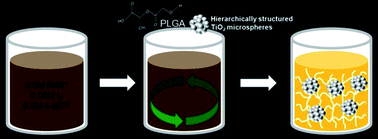A light scattering polymer gel electrolyte for high performance dye-sensitized solar cells
Abstract
In this work, a light scattering

* Corresponding authors
a
System on Chip Chemical Process Research Center, Department of Chemical Engineering, Pohang University of Science and Technology (POSTECH), Pohang 790-784, South Korea
E-mail:
srhee@postech.ac.kr
Fax: +82-54-279-8619
Tel: +82-54-279-2265
b
Laboratory of Multiferroic and Photovoltaic Nanostructures, Department of Materials Science and Engineering, and Division of Advanced Materials Science, Pohang University of Science and Technology (POSTECH), Pohang 790-784, South Korea
E-mail:
hmjang@postech.ac.kr
Fax: +82-54-279-2399
Tel: +82-54-279-2138
In this work, a light scattering

 Please wait while we load your content...
Something went wrong. Try again?
Please wait while we load your content...
Something went wrong. Try again?
W. Kwon, Y. Chang, Y. Park, H. M. Jang and S. Rhee, J. Mater. Chem., 2012, 22, 6027 DOI: 10.1039/C2JM15889B
To request permission to reproduce material from this article, please go to the Copyright Clearance Center request page.
If you are an author contributing to an RSC publication, you do not need to request permission provided correct acknowledgement is given.
If you are the author of this article, you do not need to request permission to reproduce figures and diagrams provided correct acknowledgement is given. If you want to reproduce the whole article in a third-party publication (excluding your thesis/dissertation for which permission is not required) please go to the Copyright Clearance Center request page.
Read more about how to correctly acknowledge RSC content.
 Fetching data from CrossRef.
Fetching data from CrossRef.
This may take some time to load.
Loading related content
